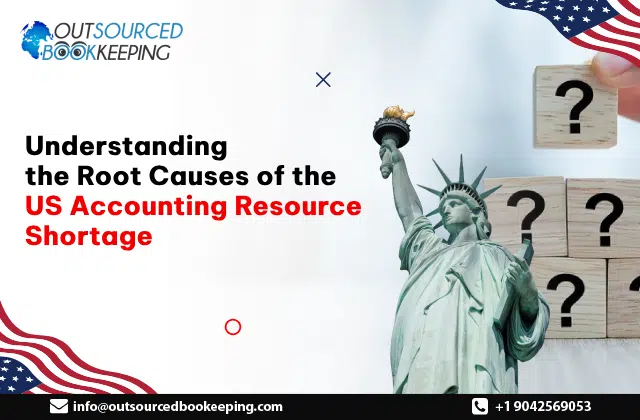Did you know? Over 600 U.S.-listed companies reported resource shortages(US accounting resource shortage) in internal financial controls in 2023. What’s more surprising is that this shortage represents an unprecedented 40.3% increase from 2022.
Unfortunately, this shortage has no immediate solution, as the supply side still needs to balance. In 2020 alone, accounting graduates dropped by 2.8%, while master’s graduates saw an 8.4% decline.
The issue goes two steps deep—CPA exam participation also dropped by 7%, the lowest level since 2006. And the slide doesn’t stop—there are not enough existing resources to cover this shortage because more than 75% of AICPA members are at their retirement age.

The result? 87% of companies find it increasingly difficult to secure the right accounting talent for essential and core accounting functions like financial analysis, budgeting, and reporting.
Accounting Talent Shortage: A Global Problem with Local Causes
In our previous blogs we explored how the global shortage of accounting talent has affected various industries and how businesses can adapt. However, we still haven’t discussed the root causes of the accounting talent shortage in the U.S.
This shortage has been rampant worldwide, but the causes are different in different countries. Understanding the root cause is key for any business or CPA firm to protect itself from the consequences.
If you are a CPA firm or a business in the U.S. looking at the situation and wondering how you should proceed to mitigate the impact of this shortage, then this blog is for you.
Today, with insights from our accounting experts at Outsourced Bookkeeping, we’ll help you identify the root causes so you can address the issue and develop strategies to mitigate the impact. Let’s get started!
Root Causes of the US Accounting Resource Shortage
Less-attractive pay structures: There was a time when accounting was considered a prestigious profession, especially for pay and job security. And that was three decades ago, before the tech boom. Today, accounting offers lower salaries than finance and tech, making it a less attractive career option. This is the most significant reason for declining interest in the accounting profession.
Initial hurdles and extensive time investments: The stagnation in the accounting industry doesn’t need to gel better with the rising school costs. Add this to the 150-credit-hour requirement for CPAs, which involves significant time and effort investment for pay that doesn’t promise much.This time investment, which almost equates to the fifth year in college, doesn’t really bode well for the potential pay structure. So, it is understandable that students are passing on a career in accounting, which is the root cause of the talent shortage in the accounting industry.
Aging Talent Force: Initial hurdles and less attractive pay structures are two bottlenecks slowing the flow of accounting graduates entering the industry. Add this to the retirement of the existing accounting workforce, and the problem worsens. Many senior accounting resources, not just in the U.S. but also in Germany, the UK, and Australia, are approaching retirement age, which is a severe blow to the accounting industry. Another major problem is the current attrition in the industry, where accounting professionals are switching their careers to finance and technology for better remuneration and opportunities. This leads us to the next cause.
Attractive Career Certifications: Even accounting graduates who go through all the initial hurdles to join the accounting industry feel dissatisfied with the job profile. These disengaged candidates find certifications like CFA and CMA attractive options for pivoting their careers into investment management, strategic management, and corporate finance.
Rise of Automation Tools in Accounting: Corporations and individual tax preparers are gradually (if not already) turning toward automated accounting software to perform routine tasks that entry-level accountants in the industry previously handled. These accounting automation tools today increase productivity, reducing the workload for accountants and even restructuring job descriptions for the better.
However, paradoxically, this rise of automation tools also led to widespread misconceptions of job insecurity, gradually leading to a decrease in accountants choosing this accounting path and more accountants switching out of the field.
Now that we have found that root causes of US accounting resource shortage, it is time we understand the impact of this crisis on other fields, especially accounting. If you are already well aware of the affects and are looking to find ways and adapt to these problems, then we got you covered. With the inputs from our accounting experts at Outsourced Bookkeeping we have gone through these topics in our previous blogs below.
How the Accountant Shortage is Impacting Businesses: What You Need to Know
Adapting to the Accountant Shortage: Tips for Accounting Firms








